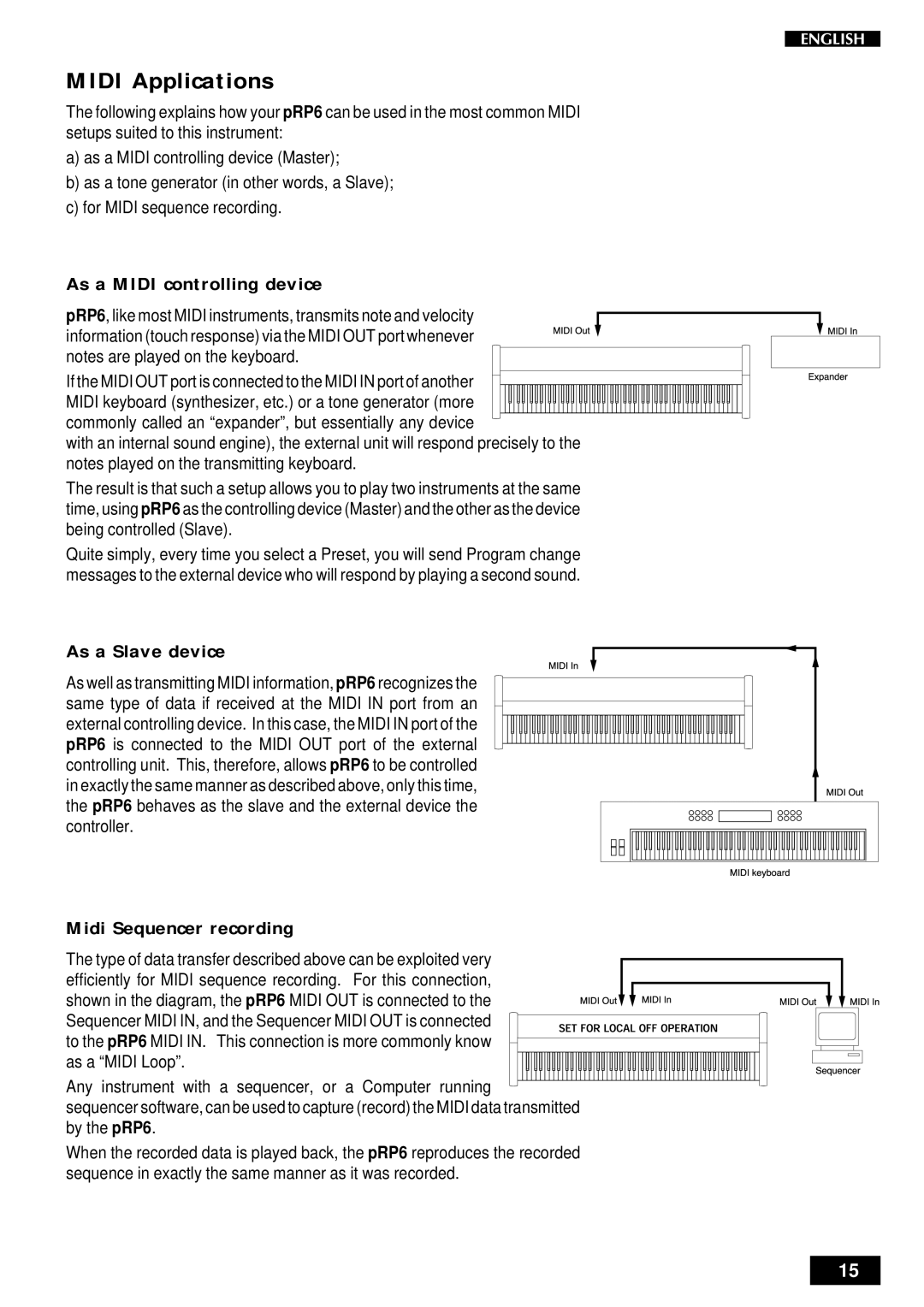
MIDI Applications
The following explains how your pRP6 can be used in the most common MIDI setups suited to this instrument:
a)as a MIDI controlling device (Master);
b)as a tone generator (in other words, a Slave);
c)for MIDI sequence recording.
As a MIDI controlling device
pRP6, like most MIDI instruments, transmits note and velocity information (touch response) via the MIDI OUT port whenever notes are played on the keyboard.
If the MIDI OUT port is connected to the MIDI IN port of another MIDI keyboard (synthesizer, etc.) or a tone generator (more
commonly called an “expander”, but essentially any device
with an internal sound engine), the external unit will respond precisely to the notes played on the transmitting keyboard.
The result is that such a setup allows you to play two instruments at the same time, using pRP6 as the controlling device (Master) and the other as the device being controlled (Slave).
Quite simply, every time you select a Preset, you will send Program change messages to the external device who will respond by playing a second sound.
As a Slave device
As well as transmitting MIDI information, pRP6 recognizes the same type of data if received at the MIDI IN port from an external controlling device. In this case, the MIDI IN port of the pRP6 is connected to the MIDI OUT port of the external controlling unit. This, therefore, allows pRP6 to be controlled in exactly the same manner as described above, only this time, the pRP6 behaves as the slave and the external device the controller.
Midi Sequencer recording
The type of data transfer described above can be exploited very efficiently for MIDI sequence recording. For this connection, shown in the diagram, the pRP6 MIDI OUT is connected to the Sequencer MIDI IN, and the Sequencer MIDI OUT is connected to the pRP6 MIDI IN. This connection is more commonly know as a “MIDI Loop”.
Any instrument with a sequencer, or a Computer running ![]() sequencer software, can be used to capture (record) the MIDI data transmitted
sequencer software, can be used to capture (record) the MIDI data transmitted
by the pRP6.
When the recorded data is played back, the pRP6 reproduces the recorded sequence in exactly the same manner as it was recorded.
15
